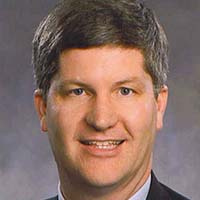 Hartland Criminal Lawyers, Wisconsin
Hartland Criminal Lawyers, Wisconsin
Sponsored Lawyers
1-10 of 12 matches
Criminal, Traffic, Personal Injury, Business
Attorney McClure has a general practice serving individuals, families, and small businesses. Early in his career Attorney McClure gained valuable experience at the Milwaukee City Attorney's office, Milwaukee County District Attorney's office, then in private practice with an "A" rated Milwaukee litigation firm. Attorney McClure then developed a general practice in the metro Milwaukee area over the next decade which became known as McClure Law Offices. His practice has been located in Delafield, Wisconsin since 1997. A trial attorney by training, with numerous civil and criminal jury trials in his career, Attorney McClure brings a wealth of experience to his clients at the local, state and national levels in civil, criminal, administrative and appellate law. The law office is a limited liability company, Attorney Thomas J. McClure LLC. The office is generally known by its trade name "McClure Law Offices. He has appeared on Wisconsin Public Television, NBC's Today Show, and is listed in Who's Who in American Law.
(more)Accident & Injury, Criminal, Juvenile Law, Estate Planning, Trusts
Mr. Bucher has been practicing law in Wisconsin since 1981. His area of practice includes complex litigation, criminal defense, personal injury, government law, open records/open meetings, campaign finance and election law and victim's rights. Previously he was District Attorney of Waukesha County, WI where he handled cases from police executions, murders, sex assault, robbery, narcotics, corruption, traffic, DWI, open records/meetings, elections and numerous other areas. In the Spring of 2023, Attorney Bucher merged his firm with Attorneys Peter Wolff and Ronald Sonderhouse, to form Bucher, Wolff & Sonderhouse, LLP.
(more)Criminal, Divorce & Family Law, Juvenile Law, DUI-DWI, Estate Planning
Attorney Peter M. Wolff is a managing partner at Bucher, Wolff & Sonderhouse, LLP that focuses on criminal defense and family law. Before Peter was a lawyer, he served as a law enforcement officer in Wisconsin for ten years. Peter earned his Juris Doctorate in 2002 from Marquette University Law School. Upon graduation, he was admitted to the Wisconsin Bar in 2003. In addition, Attorney Wolff is also admitted to practice law in the U.S. District Court Eastern District of Wisconsin and the U.S. Court of Appeals 7th Circuit. To schedule a free consultation with Attorney Wolff, visit his website, or call 262-232-6699.
(more)






